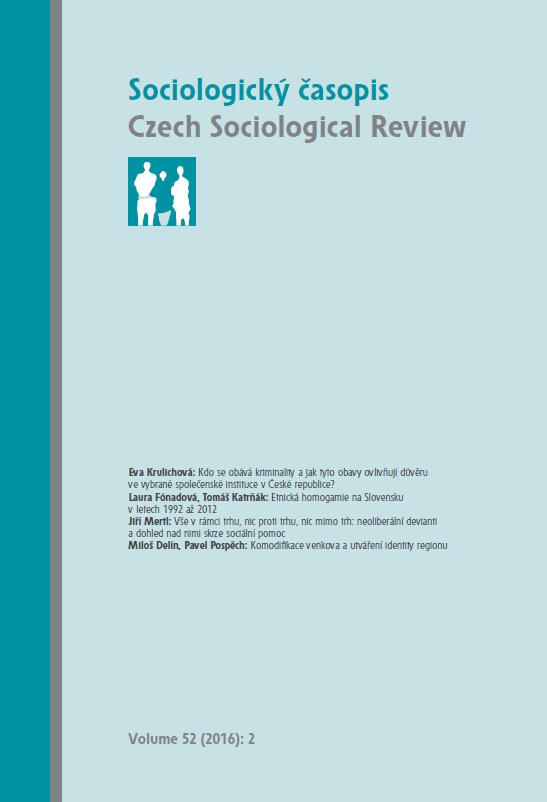Kdo se obává kriminality a jak tyto obavy ovlivňují důvěru ve vybrané společenské instituce v České republice?
Who Fears Crime and How Does This Fear Influence Trust in Selected Social Institutions in the Czech Republic?
Author(s): Eva KrulichováSubject(s): Sociology, Criminology, Victimology
Published by: AV ČR - Akademie věd České republiky - Sociologický ústav
Keywords: fear of crime; perceived risk of victimisation; police effectiveness; European Social Survey Round 5
Summary/Abstract: Over the years both scientists and scholars have been interested in fear of crime because it ranks among the most important indicators of the effectiveness of the fight against crime. Although this phenomenon is widely studied abroad, there are only a handful of Czech studies that discuss it in depth. The aim of this article is to broaden the scope of research in this area. The article maps the possible causes and consequences of fear of crime in reference to the literature and the specific milieu of the Czech Republic. The author draws on a representative sample of 2836 respondents from the fifth wave of the European Social Survey. Consistent with findings in international research the data suggest that a perceived risk of victimisation is a significant factor influencing respondents’ fear. Conversely, indicators of vulnerability, such as gender and satisfaction with family income or victimisation, although statistically significant, explain only a small part of the variability of the dependent variable. Rather they act vicariously right through the perceived risk of victimisation. Finally, the data suggest that fear of crime can play an important role in shaping attitudes towards different social institutions, in particular the police. A higher fear of crime correlates with/is associated with a worse assessment of police effectiveness.
Journal: Sociologický časopis / Czech Sociological Review
- Issue Year: 52/2016
- Issue No: 02
- Page Range: 131-155
- Page Count: 25
- Language: Czech

